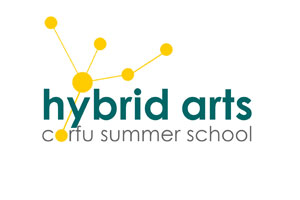TTT2017: Call for papers, posters and artwork presentations
Taboo - Transgression - Transcendence in Art & Science 2017
Deadline for proposals: February 28 March 10, 2017
Corfu, Greece, 26-28 May 2017
The Department of Audio and Visual Arts of the Ionian University organizes for the second year in a row the interdisciplinary conference "Taboo - Transgression - Transcendence in Art & Science", including theoretical and artwork presentations. In 26-28 May 2017 the conference will take place once more in the island of Corfu.
The conference continues to focus: a) on questions about the nature of the forbidden and about the aesthetics of liminality - as expressed in art that uses or is inspired by technology and science, b) in the opening of spaces for creative transformation in the merging of science and art. Besides the call for papers and artwork presentation, this year's conference also includes a call for posters, organized in conjunction with the A-Club of the Planetary Collegium. Art’s playfully transgressive nature offers creative bypasses to the grammar of science and expands the dialogue with its openness to a multiplicity towards the new. Nevertheless, art – albeit its originary affinity with the taboo – is never completely liberated from moral considerations. Deeply involved into this lively discourse on the nature of the taboo, art becomes the very domain of contemporary experimentation with transgression, in order to provoke and sparkle discourse, catalyzing possible forms of transcendence.
Art is, in so many ways, a reflection of reality, its glorification as well as its challenger, in an instinctive understanding that nothing is stable despite the effort to keep a balance between the comfort of belief and the delusion of control. Art and science interrelations are not always clear and one could have the impression that the artist seems more permeable to the influence of science than the scientist to the influence of art. After all, the idea of inhabiting the moon grew stronger in literature with the invention of the telescope in the 17th century.But weren't all those fictional depictions of space travelling and living in another world already a step on the lunar surface?Much before 1969, through literature and film, humankind had already reached not only the Moon but several other planets.For scientists there was only to find a utilitarian option for an idea that had become conceivable while still mesmerizing. This year's conference is inspired by the work of the pioneers who challenged the linear thinking towards spatial arts and time-based media and the ones who were able to transcend the illusion of reality and the confines of technology. Those who first took humankind into space, the ones who have described time traveling, the ones who saw beyond the restrictions of senses, the fearless who were innocent enough to show the potential in the human species and sufficiently cynical to describe the fragility of any civilization: Jules Verne, H.G. Wells, Georges Méliès, Fritz Lang, Isaac Asimov, George Pal, Arthur C. Clarke, Stanley Kubrick and so many other visionaries. This year's conference is dedicated to all those who keep pushing the limits further than the next gadget and understand the essential role of fantasy when synchronized with reality. One step further, one more time, knowing that the truly opening dimension might be towards the voyaging of consciousness.
This year's conference is inspired by the work of the pioneers who challenged the linear thinking towards spatial arts and time-based media and the ones who were able to transcend the illusion of reality and the confines of technology. Those who first took humankind into space, the ones who have described time traveling, the ones who saw beyond the restrictions of senses, the fearless who were innocent enough to show the potential in the human species and sufficiently cynical to describe the fragility of any civilization: Jules Verne, H.G. Wells, Georges Méliès, Fritz Lang, Isaac Asimov, George Pal, Arthur C. Clarke, Stanley Kubrick and so many other visionaries. This year's conference is dedicated to all those who keep pushing the limits further than the next gadget and understand the essential role of fantasy when synchronized with reality. One step further, one more time, knowing that the truly opening dimension might be towards the voyaging of consciousness.
Submissions are welcome from all art and research fields with emphasis on filmmaking, illustration, video art, sound art / electroacoustic music, photography, animation, videogames, computer art, installation art, performance art, bio art, net.art, electronic art, robotic art and cutting-edge technology in art research.
Suggested, but not exclusive topics, are those associated, with:
- Chemistry of the mind, natural healers and mind enhancement
- Post gender, transgressive identities and social models
- Cyborg, augmentation and bοdy modification
- Psycho-pharmacology, somatechnology and post-humanism
- Human-like machines, uncanny valley and sex technology
- Biopunk, hybridity and aesthetics of mutation
- Biotechnology, biophysics and music technology


 Call for papers [.v7, Updated: 22/02/2017]
Call for papers [.v7, Updated: 22/02/2017]



